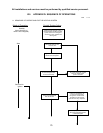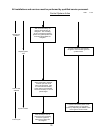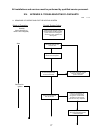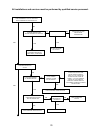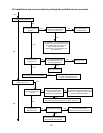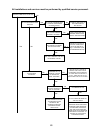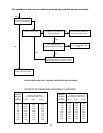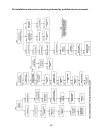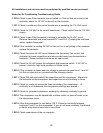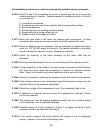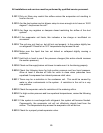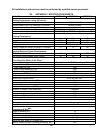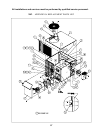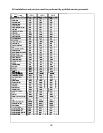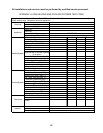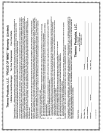All installations and services must be performed by qualified service personnel.
2.101.0 Check to see if the condenser fan motor is excessively hot as to cause the
thermal-overload to function. Possible causes for outdoor fan motor to kick off
on overload are:
1) Loose wire connections.
2) Excessive current (amp) draw, possibly due to low operating voltage.
3) Bad motor bearings.
4) Excessively dirty coil causing restricted airflow.
5) Excessively hot air being pulled into unit.
6) Stalled fan due to blockage of rotation
2.101.1 Make sure wire leads to the motor are making good connections. A loose
connection can cause an excessive current draw and overheat the motor.
2.101.2 Check for defective fan run capacitor. Use an ohmmeter on highest resistance
scale (i.e. R X 100,000 scale) or continuity. Full needle deflection or no audible
sound indicates the capacitor is open. Replace the capacitor.
2.101.3 Check for continuity of the motor windings, as the motor itself may be
damaged.
2.102.0 Make sure the discharged hot air is not recirculating back through the coil fins.
2.103.0 A slight restriction in the outdoor coil might cause an excessive head pressure
that over time may cause the compressor to function on thermal-overload.
Note: Water in the system may cause restriction after a period of time.
2.104.0 Check for refrigerant overcharge by excessive liquid and suction line pressures.
2.105.0 If the suction pressure is low, add charge to see if the pressure comes up to the
specified value on the appliance-rating label.
2.106.0 Check line voltage to the compressor to see if it is excessively high or low.
2.107.0 A defective run capacitor can also cause the compressor to overheat. Check
out the run capacitor.
2.108.0 The compressor may be drawing excessive current due to an internal defect
such as severely worn or damaged bearings.
2.109.0 Possible causes of a high superheat (15 deg. F. or higher) could be a faulty
expansion valve or an extremely low charge.
3.101.0 A low suction pressure that could indicate the system is low on refrigerant
charge. However, first review the following items.
84



